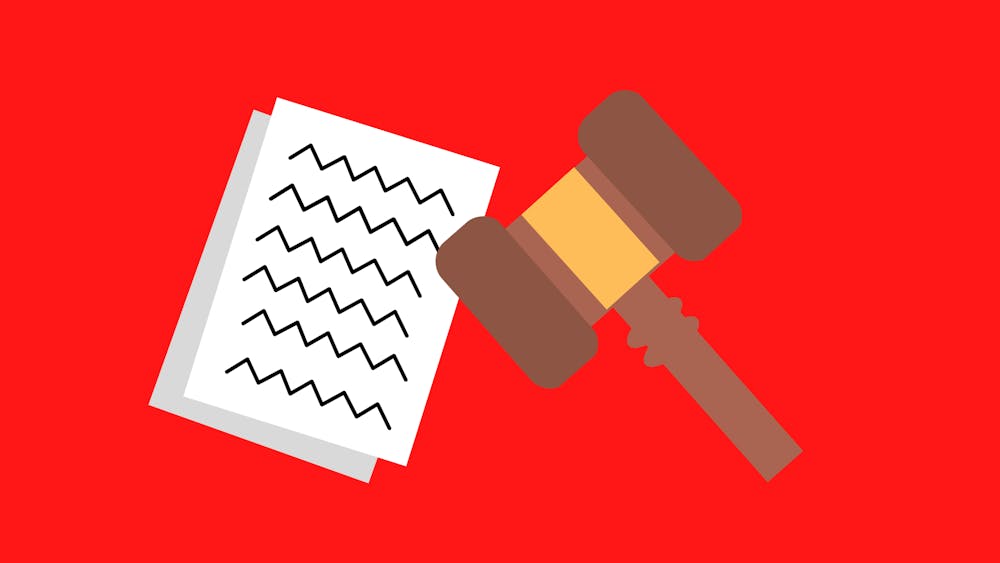With dozens of vice presidents, deans and other administrators, a Board of Trustees, a University Senate, and plenty of other committees and departmental leadership, Miami University has no shortage of decision-makers.
Add to that more than 20,000 undergraduates and graduates across four campuses, and it can be hard to see how one student can make a difference at Miami.
That hasn’t stopped people from trying, though.
Members of Associated Student Government (ASG), the Dean’s Advisory Board (DAB) and other organizations at Miami continue to show that students actually hold a significant amount of power at the university.
Run for office, make a change
Madelyn Jett, former student body president, pursued multiple initiatives based on student demand, such as organizing a wellness trip to Hueston Woods and promoting diversity, equity and inclusion on campus.
“When you run for student body president or any position in student government, you run typically with a campaign of different initiatives that you say you will pursue so students can get a feel for what different candidates will focus on,” Jett said.
Jett said this helps the students being represented know which candidate to vote for based on the changes they would like to see on campus. For example, in response to demand from the students, Jett and her former student body vice president Aidan McKeon added a new position within ASG called director of transgender equity and inclusion as part of their platform.
McKeon agreed that in order to fully render a larger body of students, their interests must be represented through the agenda of ASG representatives.
“As a queer student myself, I felt like I was able to not only represent a larger body of students but bridge the gap between Spectrum and ASG, which was a relationship not previously established before,” McKeon said. “I do feel like the intent was definitely to give more representation to a specific group of students that has been struggling on our campus.”
Beyond student government
While ASG is the most well known student representation association on Miami’s campus, the DAB also works to better amplify the voices and needs of the students.
Enjoy what you're reading?
Signup for our newsletter
All students involved in DAB work directly with Kimberly Moore, dean of students, whose main responsibility is to make sure the students of Miami feel supported. Jackson Cool, a first-year majoring in secondary social studies education, is a member of the 15-student board.
“Our main job is to bring [to] light subjects brought to us by students, whether that be concerns about mental health or student parking,” Cool said.
Members of DAB can’t directly change university policies or practices based on the feedback they receive from students. Instead, Cool said they play a vital role in conveying demands and requests from students to the staff in charge, such as the dean of students.
Quick turnovers limit progress
As Jett puts it, being a part of student government resembles a mixed bag of representing a variety of problems and concerns. Representatives have little time in office, and although they push to get initiatives accomplished in their short term, not every concern can be dealt with.
To combat this, figures such as Jayne Brownell, vice president for student life, take initiative in pursuing projects ASG members are unable to bring to fruition during their tenure.
“You can’t always do what students want to do in their timeline,” Brownell said. “We in the student life department bring institutional knowledge and can play the long game the way that students can’t.”
Brownell said the cohesive relationship between faculty and students at Miami is vital to the continued success of students. While students are able to represent ideas and concepts important to the student body, faculty members and representatives are the ones who assist in taking a student’s request or demand to the next level.
Change can escalate starting from anyone on campus, and can grow quickly through students communicating their concerns to a representative, such as a member of ASG, DAB or an administrator.
“We as students are all super well-interconnected,” Cool said. “I have people who come to me saying things like ‘we need more support from faculty and staff,’ and I’m only a freshman.”
While Brownell acts as more of a starting point for where to go when a student has a concern, Jett and McKeon brought prominent issues to high ranking faculty at Miami, including President Greg Crawford.
“Faculty members such as President Crawford and Jayne Brownell are the people who are there to listen and work with students to do what they want to do,” McKeon said.
Whether students are looking to be put in the spotlight of being a representative, there are various outlets to have their voices heard, even beyond ASG and other official governing or advisory bodies. Leaders of various organizations can bring up issues that are relevant to their specific organization to members of ASG as well as DAB.
“Any student who has a passion for making the university better could get their voice heard by administrators, faculty and staff,” Jett said. “You can get involved through any sort of student organization, even outside of ASG.”




